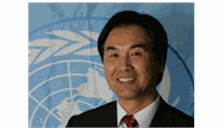Harnessing Public-Private Partnerships for Sustainable Development
The Sustainable Development Goals (SDGs), formulated as part of the 2030 Agenda for Sustainable Development under the auspices of the United Nations, have significant implications for investment needs. UNCTAD’s World Investment Report (WIR) 2014 calculated an annual financing gap of some US$2.5 trillion, needed by developing countries alone, for meeting the SDGs. Thus, to meet the SDGs, developing countries must boost foreign and domestic investment in sustainable development sectors such as infrastructure and public services.
As the United Nations’ focal point for investment and development, UNCTAD’s Division on Investment and Enterprise (DIAE) is backstopping countries’ efforts to harness private investment for sustainable development, as advocated for most recently in the Addis Ababa Action Agenda (adopted at the Third Conference on Financing for Development) and in the Nairobi Maafikiano (adopted at the UNCTAD14 Conference). This objective underlies all activities of UNCTAD’s three pillars of work: conducting evidence-based policy analysis, facilitating a network and platform for multi-stakeholder and intergovernmental consensus-building, and providing technical assistance and advisory services to over 160 countries.
Among its many activities in pursuit of this objective, UNCTAD also supports countries seeking to maximize the potential benefits of public-private partnerships (PPPs) and limiting potential pitfalls. While increasing the involvement of private investors in SDG-related infrastructure and public sectors and finding innovative financing solutions has become an ever more important policy imperative, private investors’ involvement in public (sometimes sensitive) sectors also raises a number of policy dilemmas (see WIR 2014, figure IV.15). In fact, PPPs not only present opportunities, but also risks for countries using them in the pursuit of the SDGs.
One so far relatively little discussed risk is a country’s potential exposure to costly investor-State dispute settlement (ISDS) claims. This is particularly so where international investment agreements (IIAs) do not sufficiently safeguard States’ right to regulate. Countries need to be aware of and minimize these (and other) risks when formulating policies that are to maximize the private sector’s contribution to sustainable and inclusive development. In response, UNCTAD has put its IIA-related expertise to the service of the PPP community.
As a first step, UNCTAD customized the data contained in its IIA and ISDS Navigators, distilling information on ISDS claims in PPP-related infrastructure sectors and on those IIA clauses that are particularly relevant in a PPP context. The data is now available online at a new investment policy hub website which offers policymakers and other stakeholders a user-friendly, up-to-date online repository of policies, best practices and related resources that can be used to design and implement policies to maximize the contribution of PPPs to sustainable development.
As a “living” tool, users can also “feed” the website by reporting recent information on ISDS cases or IIA clauses of relevance for PPPs. The website will also host an online discussion forum allowing interested stakeholders to interact and exchange knowledge. Policymakers, experts, academics and representatives of civil society will contribute in the coming months with their expertise, experiences and insights on how to best harness PPPs for sustainable development.
UNCTAD has also convened numerous real-life sharing of experiences among policy makers, among others, at UNCTAD’s High-level IIA Conference in October 2017 and at a number of policy workshops and seminars. This debate will culminate at a joint UNCTAD-UNECE session on Foreign Direct Investment and PPPs at the 2018 World Investment Forum, scheduled for 22 to 26 October 2018 in Geneva, Switzerland.
Through all of this, UNCTAD aims to increase awareness of the possible risks linked to PPPs and build capacity for effectively harnessing PPPs for sustainable development.
We look forward to any feedback you may have or any contribution you may wish to make.
- For reporting PPP-related ISDS cases or for contributing to the IIA specific analysis or this online exchange, please contact WIF_IIA_Conference@unctad.org or Nathalie.Eulaerts@unctad.org
- For any questions relating to the October 2018 World Investment Forum, please contact Christiane.Stepanek@unctad.org

















Comments (0)